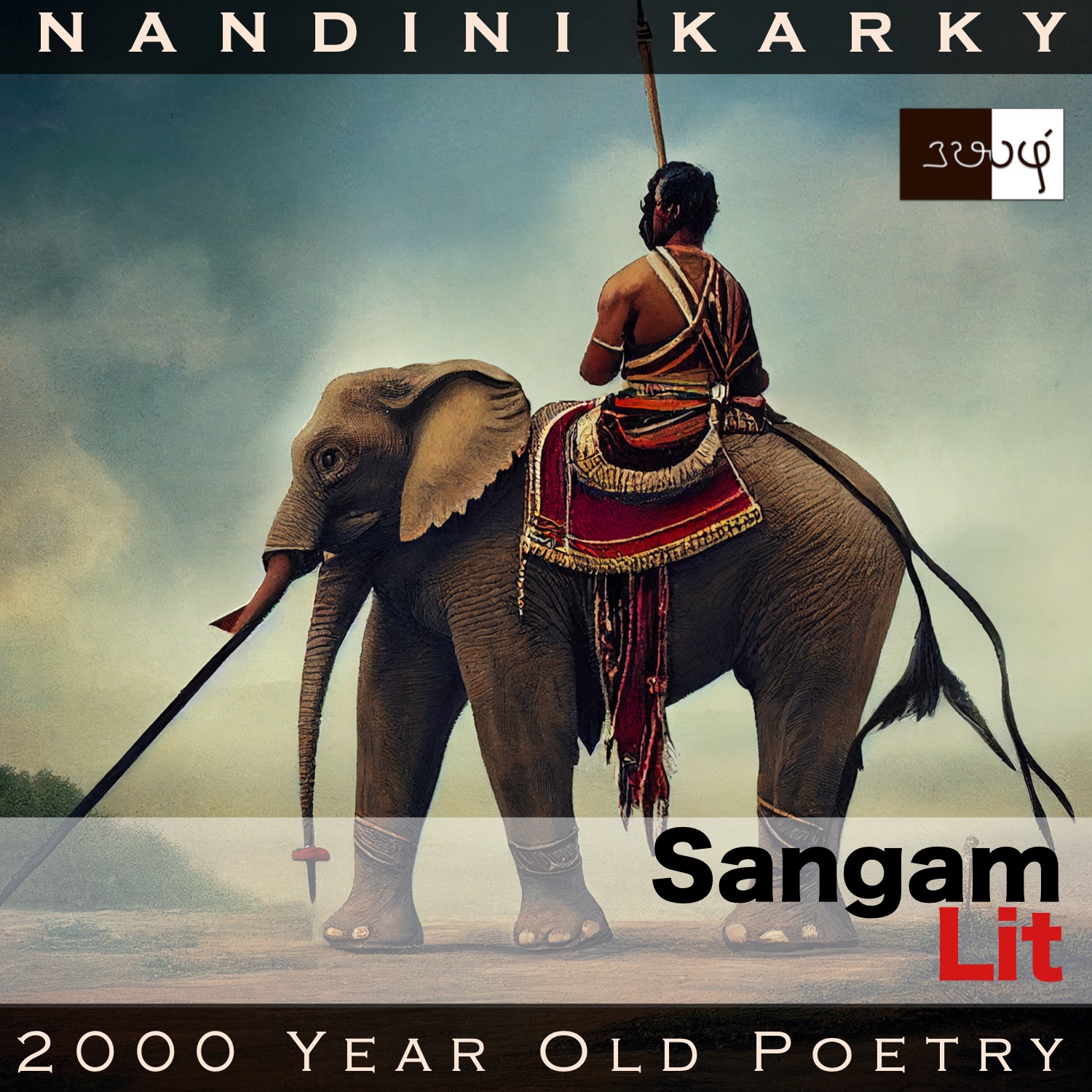Podcast: Play in new window | Download
Subscribe: Apple Podcasts | Spotify | Amazon Music | Android | iHeartRadio | TuneIn | RSS | More
In this episode, we listen to a bold statement of comparison, as portrayed in Sangam Literary work, Puranaanooru 66, penned about the Chozha King Karikaalan by the poet Venni Kuyathiyaar. The verse is situated in the category of ‘Vaagai Thinai’ or ‘king’s victory’ and talks about how this king’s opponent seems to have claimed a greater victory.

நளி இரு முந்நீர் நாவாய் ஓட்டி,
வளி தொழில் ஆண்ட உரவோன் மருக!
களி இயல் யானைக் கரிகால்வளவ!
சென்று, அமர்க் கடந்த நின் ஆற்றல் தோன்ற
வென்றோய்! நின்னினும் நல்லன் அன்றே
கலி கொள் யாணர் வெண்ணிப் பறந்தலை,
மிகப் புகழ் உலகம் எய்தி,
புறப் புண் நாணி, வடக்கிருந்தோனே?
A short song that talks about the conquest of this much-celebrated Chozha king in Sangam Literature. The poet’s words can be translated as follows:
“Wielding his vessel through the copious waters of the ocean, your ancestor ruled over the sea winds, O King Karikaalan, the tamer of raging elephants! You went to war and showing your great skill, you claimed victory there! But isn’t he a better person than you, for in that uproarious battlefield of ‘Venni’, attaining much fame in this world, he sat facing North, ashamed of the wound on his back, so as to give up his very life?”
Let us explore the nuances of these words. The poet begins by not talking about this king but an ancestor of his, who seemed to have studied and understood the flow of winds, and wielded his vessels in the seas with much skill. Akin to that, this king too controls and wields power over his raging tuskers, the poet connects. Then, coming to the situation at hand, the poet says it’s true that the king has claimed victory at Venni but another seems to have risen in esteem as a person. This victor was none other than the Chera king, we met in Puranaanooru 65, the one, who was ashamed of the wound on his back that came about not because of his retreat, but because this Chozha king Karikalan pierced the spear so forcefully that it made a mark on the Chera king’s back. Still, resorting to no excuses, the Chera king sat facing the North and gave up his life and thus seems to have attained more fame than even the victorious Karikaalan, the poet concludes.
What a sense of courage this poet must have to go tell a king someone else seems to have risen above his victory! This also shows the Chozha king’s tolerance. Haven’t we read of so many kings chopping off the heads of those below them even for minor errors? And yet, here’s a king who seems to have accepted with grace that though he won the battle, his opponent won the war of attaining fame in this life! In a subtle way, the poem depicts the respect kings had even for their enemies, and when ancient kings can have that quality, why not political leaders of today? Only respect even amidst differences can keep the world moving forward!




Share your thoughts...